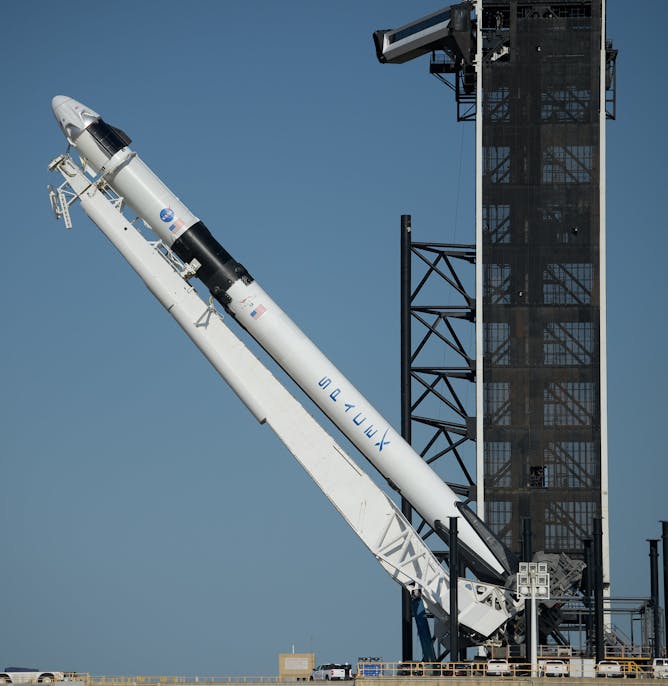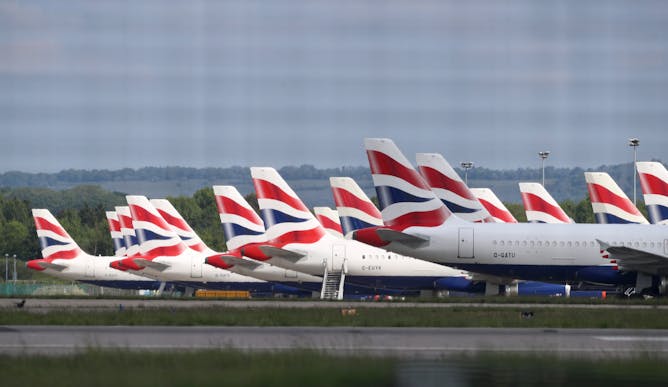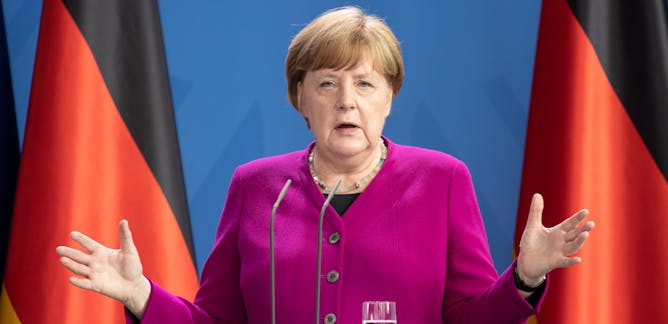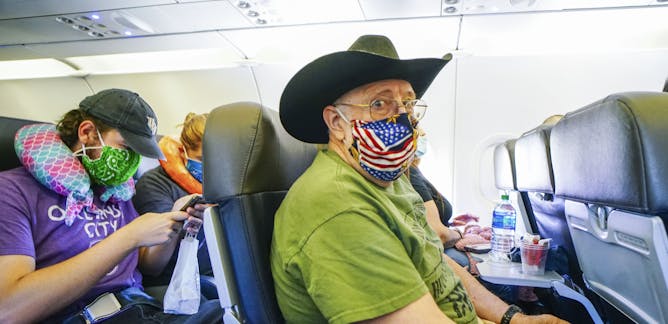|
Since the beginning of the American space age, launching astronauts into space has been NASA’s domain. But when the space shuttle program ended, things changed. Beginning in 2011, Americans relied on the Russians to get our astronauts to the International Space Station.
Now we are on the cusp of another revolution. This week, two American astronauts will blast off atop the Falcon 9 rocket, made by Elon Musk’s private company SpaceX. The launch, if successful, will pave the way for the new era of private space tourism.
A massive reduction in travel is one of the big reasons why global emissions are down by around 17%, thanks to measures to stop the spread of the coronavirus. That’s according to the first academic study of emissions during the pandemic, published earlier this week.
But we can’t carry on like it’s spring 2020 forever. And even if we did, that still wouldn’t be enough to keep global warming below 2˚C. Larissa Basso sets out what does and doesn’t work in international climate policy.
|

A SpaceX Falcon 9 rocket with the company’s Crew Dragon spacecraft onboard is raised into a vertical position on the launch pad at Launch Complex 39A.
NASA/Bill Ingalls
Wendy Whitman Cobb, US Air Force School of Advanced Air and Space Studies
SpaceX's launch of astronauts to the International Space Station will make it the first private company to launch humans to space. The effort has ramifications for NASA and spaceflight in general.
|

Drazen Zigic/Shutterstock
Olivia Remes, University of Cambridge
There comes a point when we just have to let it go and give up control.
|

Grounded planes at Gatwick Airport near London, May 2020.
Gareth Fuller/PA
Larissa Basso, Stockholm University
Global quarantine is not a long-term solution – we still have a lot of work ahead.
|
Politics + Society
|

Saltanat Janenova, University of Birmingham; Jonathan Fisher, University of Birmingham
Censorship, repression and disinformation have characterised Central Asian responses to COVID-19.
| |

Dagmar Paulus, UCL
For Germans, this is not a battle, it's a 'long distance run'.
|
|
|
Health + Medicine
|

Kacey Ernst, University of Arizona; Paloma Beamer, University of Arizona
Fear of flying means something altogether different in the age of the new coronavirus. Now the biggest concern is how to keep from becoming infected. If you must fly, here are some things to consider.
| |

Olivia Remes, University of Cambridge
There comes a point when we just have to let it go and give up control.
|
|
|